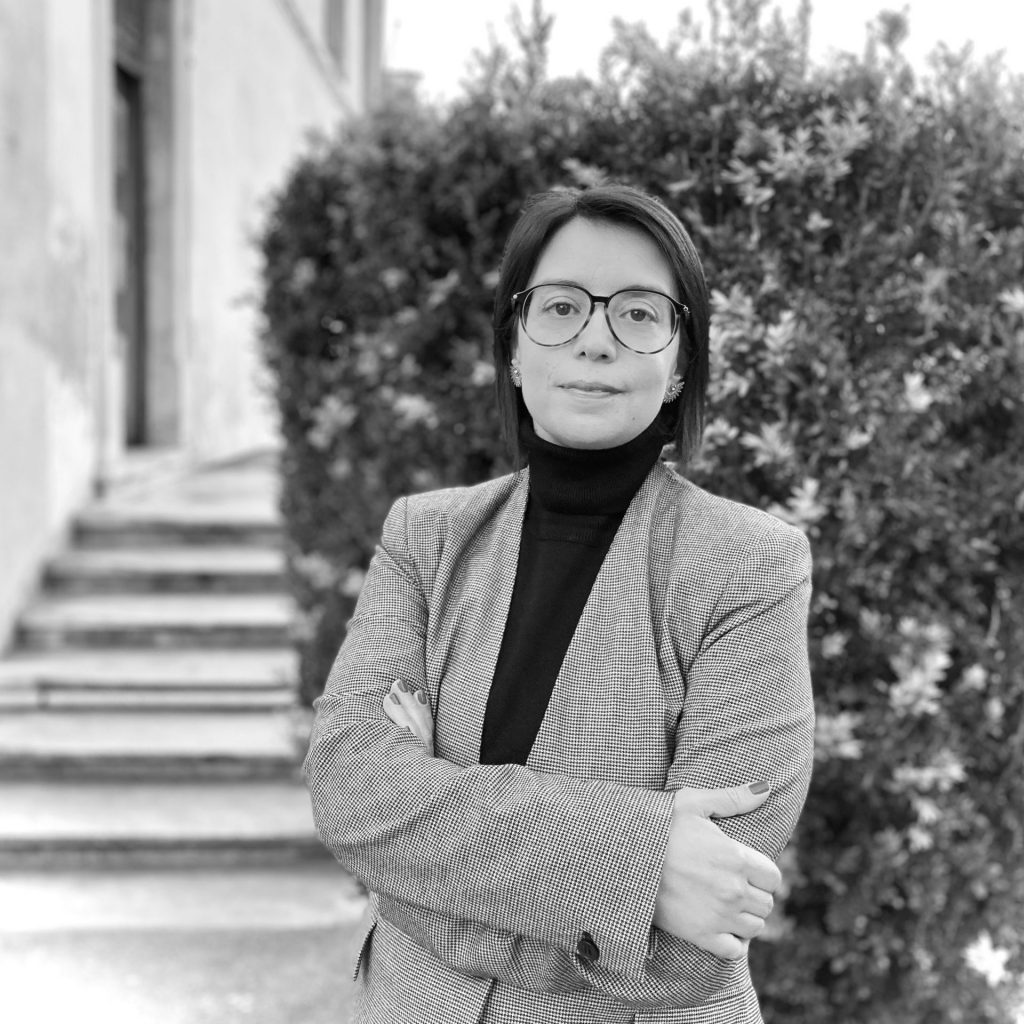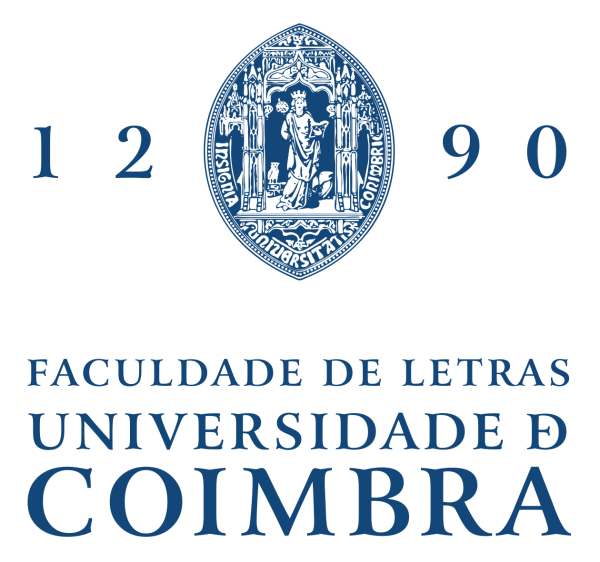email | ciência vitae | ORCID

Principal Investigator of the MyGender, Inês Amaral is an Associate Professor at the Faculty of Arts and Humanities of the University of Coimbra. PhD in Communication Sciences from the University of Minho, she is an integrated researcher at the Center for Communication and Society Studies. Inês was co-coordinator of the Journalism and Society section of the Portuguese Association for Communication. She has been researching sociabilities in digital social networks, media and digital literacy, technologies and ageing, audiences and media consumption in the digital age, gender and media. Inês has published in journals such as the International Journal of Communication, Lecture Notes in Computer Sciences, Media Studies and the European Journal for Research on the Education and Learning of Adults, and in collections such as The Routledge Companion to Gender, Sexuality and Culture (Routledge, 2021), Digital Media (McGraw-Hill, 2021), The Sage International Encyclopedia of Mass Media and Society (Sage, 2020), Perspective on Design (Springer, 2020) and The Future of Audiences (Palgrave, 2018).
Inês is a feminist activist who has been involved with various social movements for gender equality, the right to gender self-determination and the struggle for human rights.
Inês is a feminist activist who has been involved with various social movements for gender equality, the right to gender self-determination and the struggle for human rights.

Co-Principal Investigator of the MyGender, Rita Basílio de Simões is an Assistant Professor at the Faculty of Arts and Humanities of the University of Coimbra. PhD in Communication Sciences from the University of Coimbra, she is an integrated researcher at the Communication Institute of the Universidade Nova de Lisboa (ICNOVA). She coordinates the Portuguese participation in the Global Media Monitoring Project, as well as the SOPCOM Working Group on Gender and Sexualities. Her work has focused on gender representations in media production and content, uses of digital media and identity construction, discourses and practices of online and offline gender-based violence and media regulation. She has published in journals such as Feminist Media Studies, Journalism Practice, Brazilian Journalism Research and European Journal for Research on the Education and Learning of Adults, and in collections such as The Routledge Companion to Gender, Sexuality and Culture (Routledge, 2021), Human Aspects of IT for the Aged Population. Technology Design and Acceptance (Springer, 2021) and Digital Media (McGraw-Hill, 2021). Member of the General Assembly of the Portuguese Association for Women's Studies.
email | ciência vitae | ORCID

Ana Marta M. Flores is a postdoctoral researcher of MyGender project - Mediated young adults’ practices: advancing gender justice in and across mobile apps, funded by the Foundation for Science and Technology (FCT), located at the Faculty of Arts and Humanities of the University of Coimbra. Holds a doctorate and master's degree in journalism (UFSC/Brazil), with a PDSE/CAPES period (ULisboa/Portugal). Visiting professor at Universidade NOVA de Lisboa (Information Management School), researcher associated with the NOVA Institute of Communication (ICNOVA), and coordinator of the Innovation & Trend Studies research group (ITS) at iNOVA Media Lab. She is also a researcher at the Trends and Culture Management Lab of the University of Lisbon and Center for Studies and Production in Hypermedia Applied to Journalism - Nephi-Jor (UFSC/Brazil).
email | ciência vitae | ORCID

Eduardo Antunes is a master’s fellow researcher for the MyGender project, a PhD student in Communication Sciences at the University of Coimbra, where he completed his Master’s Degree in Journalism and Communication. Holds a Bachelor’s Degree in Marketing from the University of Aveiro, and is also a radio broadcaster at RUC - Rádio Universidade de Coimbra, assuming the role of co-coordinator of Programs at that same radio station. Has prior experience in translation and marketing, including an AIESEC international internship in Cairo, Egypt. Music, communication and research are three cornerstones of his life. He intends to develop further academic work onto the orientalist and gender dimensions in media.
email | ciência vitae | ORCID

PhD in Social Sciences from the Institute of Social Sciences of the University of Lisbon, she is a professor at the School of Social Communication, Polytechnic Institute of Lisbon and integrated researcher at ICNOVA. She was a visiting scholar at the Department of Communication Studies at the University of Iowa, Iowa City (2010) and at the Muhlenberg Collegue (2008), Allentown, USA, at the University Cardinal Stefan Wyszyński, Warsaw, Poland (2017, 2018) and at the Department of Public Communication at the University of Navarre, Spain (2019). Between 2014 and 2018, she was the editorial coordinator of the journal Comunicação Pública. She was deputy coordinator of the Communication and Policy WG at SOPCOM (Portuguese Association of Communication Sciences) (2015-2017). Since 2020, she has been a member of the expert group of the Commission for Citizenship and Gender Equality. Her research interests have focused on the sociology of Communication, the social theory of the media in the US and Canada and on issues relating the media to gender issues, areas where she has published articles and book chapters, supervised theses and organized several scientific events. She is co-editor and author of Media and Portuguese Empire (Palgrave Macmillan, 2017), “Os três 'D's dos Media: Desigualdade, Desprofissionalização e Desinformação” (Outro Modo, 2021) and “A Crise do Jornalismo em Portugal” (Deriva/Le Monde, 2017). In 2006 she published “Compreender os Media. As Extensões de McLuhan “(MinervaCoimbra).
email | ciência vitae | ORCID

Janna Joceli Omena is an invited associate professor in Digital Media and Methods at NOVA Social Sciences and Humanities school of NOVA University Lisbon, and a former research fellow at the Center for Advanced Internet Studies (CAIS), Bochum, Germany. During her fellowship at CAIS (March to August 2021), she developed a project about and a method recipe to build and interpret computer vision networks. She is a member of the Public Data Lab and a founding member of iNOVA Media Lab, Lisbon, Portugal, where she has been leading the #SMARTDataSprint for six years (an event devoted to conducting empirical research with digital methods). Her research is about digital methods and technicity-of-the-mediums, focusing on investigating the functioning and potentials of digital platforms, web-based applications and software for methodological innovation. She taught digital methods at NOVA University Lisbon in NOVA Information Management School and at King’s College London in the Department of Digital Humanities. Her work has been published in Social Media & Society, Information Communication and Society, Journal Diseña and Journal ICONO14.
email | ciência vitae | ORCID

Anthropologist, documentary filmmaker, and social science communicator. She holds a Ph.D. in Human Rights in Contemporary Societies with a thesis discussing human rights through the lens of asexuality in Portugal. Co-coordinator and lecturer of the MA in Social and Cultural Psychiatry (University of Coimbra) Rita Alcaire has been developing outreach and advocacy activities in this area of expertise, namely through the Hearing Voices project (funded by DGARTES). She has been involved in the organisation of the advanced training cycle Publish do not Perish (CES) where she coordinates sessions on the mental health in academia and teaches social science communication strategies to Early Career Researchers. Her research interests lie in the expansion of theory and practice of social science communication, the study of gender and sexualities, mental health, and pop culture using media as a privileged way to engage with them.
Photo: João Azevedo
Photo: João Azevedo
email | ciência vitae | ORCID

Sílvio Correia Santos is an Assistant Professor in the Faculty of Arts and Humanities of the University of Coimbra. Holding a PhD in Communication Sciences, Sílvio has dedicated his research to radio, particularly in media history, public service media, and participatory media. Some of his most recent research deals with disinformation and education. He has been a member of several research projects and is currently teaching in the area of radio and multimedia communication. Prior to his career in academia, he was a producer and presenter of the public broadcaster. He is a music lover with a passion for sound, a gardening apprentice, and a sportsman for pleasure.
email | ciência vitae | ORCID

Sofia José Santos is Assistant Professor in International Relations at the Faculty of Economics, University of Coimbra, and a Researcher at the Center for Social Studies, where she coordinates the DeCodeM project as a Principal Investigator. Since 2008 she has undertaken research on media and global interventionism; media and securitization processes; internet and technopolitics; and media and masculinities from a feminist and critical perspective. Within CES, she is also coordinator for Promundo-Portugal's Media and Masculinities programming area and co-editor of Alice News. Previously, she was also a visiting scholar at the Flemish Peace Institute and a Marie Curie fellow at the Universiteit Utrecht. In addition to publications, conferences and national and international research projects, it is also worth mentioning her involvement in international networks, social movements, and the several research works she has undertaken for international think tanks and development agencies. She holds a PhD and an MA in International Politics and Conflict Resolution by the Faculty of Economics of the University of Coimbra, and a Diploma in Advanced Studies in Communication Sciences from ISCTE-IUL.
email | ciência vitae | ORCID
Aristea Fotopoulou
Universidade de Brighton
Carolin Gerlitz
Universidade de Siegen
Sander de Ridder
Universidade da Antuérpia
Taina Bucher
Universidade de Oslo

Natalia Reis Gomes is a PhD candidate in Communication Sciences at the Faculty of Arts, University of Coimbra in the Department of Philosophy, Communication and Information. She worked as a research assistant to Danish sociologist Dr. Peter Abrahamson in the Department of Sociology at the University of Copenhagen with an emphasis on studies on Waitresses and the intersectionality across gender, race and class in domestic work. She was an intern at the School of Social Policy and Social Justice at University College Dublin under the supervision of Dr Ernesto Vasquez de Aguila in the area of Culture and Sexuality, in particular addressing issues of identity, gender and power. She participated in the Project "Pedagogies of the body: on the construction of gender in feminist theories" and the University Extension Project "Women Between Cloth and Seed", in the Center for Humanities and Arts of the State University of Maringá.

Frederico Fonseca has a degree in Multimedia and is a PhD candidate in Communication Sciences at the Faculty of Arts of the University of Coimbra. He is a Public and Private Higher Education Assistant, as well as a researcher in the area of Communication Sciences and Information and Communication Technologies. Currently he integrates the research team of 3 projects, two national and one international (ERASMUS+). He is interested in topics related to algorithmic governance, datafication, m-apps, serious games and active ageing.

Agda Dias Baeta is PhD candidate in Communication Sciences, and she has a master's degree in Journalism and Communication from the Faculty of Arts and Humanities at the University of Coimbra. She holds a post-graduate degree in Strategic Management of Organizational Communication and Public Relations from the School of Communication and Arts at the University of São Paulo and a bachelor's degree in Social Communication from the Business School of Advertising and Marketing (ESPM-São Paulo). With over 15 years of professional experience in the Communication and Marketing areas of large corporations, she has dedicated herself to the study of gender in organizational and media communication. Comics, soap operas, movies, TV series, social media and advertising films are among the analyzed media.

PhD candidate in Communication Sciences at Alexandru Ioan Cuza University of Iași, Romania. She is interested in the studies of new media, social media influencers, algorithmic governance and participatory culture. She currently works as a social media strategist for Epistemologic.

Master's student in Communication and Territorialities at the Federal University of Espírito Santo, Brazil (2020-2022), graduated in Journalism from the same institution (2017). She is currently doing a research internship at the Faculty of Arts and Humanities of the University of Coimbra. Her research project is focused on literary journalism, feminism and representation of women in History. She has articles published in journals such as Revista Líbero (Faculdade Cásper Líbero/SP) and Reciis (Fiocruz), and papers presented in events such as the Congress of the Brazilian Association of Journalism Researchers (SBPJOR). She was the winner of the Young Journalist Award 2014 (Vladimir Herzog Institute - SP) and the 2016 Capixaba Cooperative Journalism Award (OCB / ES).




